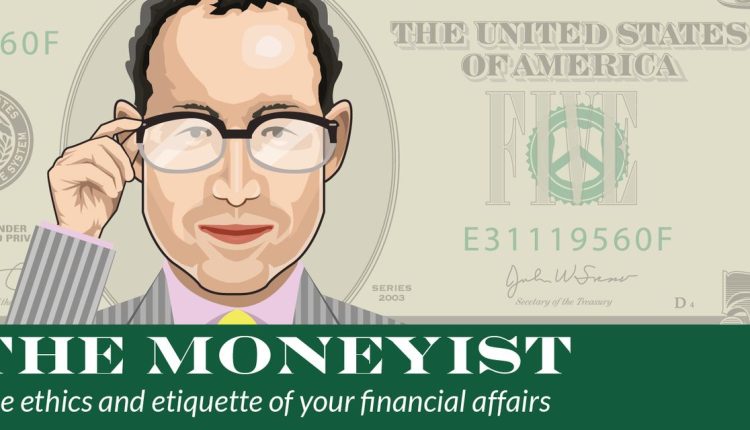‘I’m 50, and I went from being homeless to owning a home’: Where should I invest my $50,000 life savings?
Dear Quentin,
I have a question that might appear like a simple one, especially for all the advanced money-management folks out there and for people with more money than I have. I am 50, have very little savings, and I would like to invest $50,000. What is a good type of account to start with? Where can I get a 5% or 6% interest rate?
I would like to be able to withdraw the money if there is an emergency, add to it at will, and be able to monitor it. Forgive my ignorance on the subject. I went from being homeless to owning a home, becoming a business owner and now, hopefully, doing a little investing. I just don’t have a clue where to start.
I currently have the whole amount in regular banks.
First-time saver and investor
Dear First-time,
Ignorance has nothing to do with it. Even Warren Buffet makes mistakes.
You’re not alone in not knowing where to start. The financial world does not make saving and investing easy. People are put off by financial jargon. Not all Americans are confident about even common financial terms such as “index fund,” which is a fund that tracks a specific set of investments; “stock options,” a company benefit allowing employees to buy shares in the company at a specific price; or “Roth IRAs,” retirement accounts that typically offer tax-free distributions.
You could simply opt for a high-yield savings account or a certificate of deposit. CDs are investment vehicles that attract people who are looking for a safe haven for their cash in an uncertain economic climate. CD rates typically track the federal-funds rate, which is currently in the range of 5.25% to 5.5%.
Meanwhile, inflation is high — 3.7% in August, up from 3.2% in July — and unemployment is low. Economists are speculating that any recession will be a mild one. So the interest rates you can get on CDs and savings accounts are currently outstripping inflation. You can get CDs with annual percentage yields of up to 5.5% and high-yield savings accounts with 4.5% to 5% APYs. Note, however, that some accounts have minimum and maximum deposit requirements.
The Federal Reserve is meeting this week to decide whether to hike rates again, but it is widely expected to leave rates where they are this time around. The Fed has a target inflation rate of 2%.
“ In addition to CDs, other options with zero or close to zero risk include high-yield savings accounts and checking accounts and short-term Treasury bills. Money-market funds are also extremely low risk.”
With interest rates so high, for now at least, and the stock market continuing to take investors by surprise with its roller-coaster performance over recent years, making money off cash is an increasingly popular option for savers and investors alike. In addition to CDs and high-yield savings accounts and checking accounts, other options with zero or close to zero risk include short-term Treasury bills. Money-market funds are also extremely low risk.
It’s smart to have an emergency fund of six to 12 months’ worth of expenses, and to make an effort to make money while you sleep. Three years after the pandemic, as the Fed tries to cool inflation by raising interest rates without pushing the economy into a recession, people are uncertain about what might happen next. In fact, 48% of Americans believe the economy will stay the same or get worse, according to this survey released Tuesday by MassMutual.
You have come so far already, and you are still relatively young. Owning your own home is one of the best ways to accumulate wealth. You have 17 years left before you start to collect Social Security, if you choose to do so at the full retirement age of 67. Most people are in a similar situation to yours. Among retired Americans, only 43% told MassMutual that their retirement savings are about what they need to be. Meanwhile, 21% said they have more than they need, and 29% said they have less than they need.
You could also consider opening a 401(k) or IRA retirement plan. You’ll make money not only on the capital you invest, but on the interest that accumulates, too. They call that compound investing, and it’s one of the financial concepts most overlooked by young people who, perhaps too often, think about today and tomorrow instead of the next 20 or 30 years.
Remember, everyone starts at the beginning, and all the smart ones, like you, start by asking questions.
By emailing your questions, you agree to have them published anonymously on MarketWatch. By submitting your story to Dow Jones & Co., the publisher of MarketWatch, you understand and agree that we may use your story, or versions of it, in all media and platforms, including via third parties.
The Moneyist regrets he cannot reply to questions individually.
More from Quentin Fottrell:
It provides shade and privacy’: My neighbor wants me to cut down my 20-year-old oak tree. Can he force me to?
My husband ran away to another state, bought a home and opened credit cards. Am I responsible if he defaults?
‘I’m conflicted’: My fiancé earns less than me, and racks up credit-card debt. Is it a bad idea to get married?
Read the full article here

